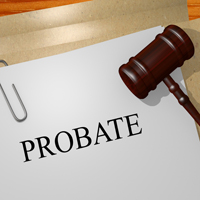 When a loved one dies, family members are left with the task of handling the financial affairs of the deceased individual, referred to as the decedent. This includes settling debts, paying owed taxes, distributing the decedent’s property, and closing out bank accounts.
When a loved one dies, family members are left with the task of handling the financial affairs of the deceased individual, referred to as the decedent. This includes settling debts, paying owed taxes, distributing the decedent’s property, and closing out bank accounts.
These activities fall under the legal process called probate. State laws vary with respect to whether an estate must pass through the probate process, so the first step should be to consult with an experienced wills and estates lawyer to see if probate applies to the deceased individual’s estate.
Role of the Executor
The probate process generally begins with the filing of paperwork in probate court by an executor, who was either named in the will or appointed by the court. The executor will provide the court with the will and an inventory of the estate property and debts.
Once an estate is opened for probate, individuals named as beneficiaries in the will and the decedent’s creditors will be officially notified of the death.
Executors are tasked with making decisions regarding the distribution of the estate assets in accordance with the decedent’s will. This includes handling the transference of the decedent’s property to the legal heirs and beneficiaries.
Determining how and what to appraise, which assets can be easily converted to cash in order to pay debts, and how to handle real estate are some of the issues that executors must decide during the probate process.
Probate Steps
Once the executor has filed the probate petition and notice has been given to all relevant parties such as creditors and heirs, the probate court usually schedules a hearing regarding the filed petition. The executor will take inventory of the estate property to allow creditors to make a claim against any assets within the time prescribed by state law. This inventory will list all the decedent’s assets, including real estate, personal property, stocks, bonds, bank accounts, retirement accounts, and other business interests.
Any legitimate creditor claims and final bills from the estate, including funeral expenses and taxes, will be paid from the estate at this time. The last probate step generally is the transfer of legal title of the estate property to the designated heirs, as set forth in the decedent’s will. This step occurs after a waiting period to allow unknown creditors to petition for payment from the estate, if necessary. In some circumstances, this involves the establishment of a trust for the benefit of a minor, spouse, or incapacitated heir.
Costs Associated with Probate
Most routine costs of probate will be paid directly from the estate property. Probate can become a more expensive process, particularly in those cases where individuals are contesting the validity of the deceased individual’s will.
When beneficiaries disagree about the contents of a will or the appraisal value of property, lengthy court battles may ensue, resulting in significant expenses.
West Chester Wills and Estates Lawyers at Eckell Sparks Help Individuals Navigate the Probate Process
The experienced West Chester wills and estates lawyers at Eckell, Sparks, Levy, Auerbach, Monte, Sloane, Matthews & Auslander, P.C. handle probate matters throughout the Chester County, Delaware County, and Montgomery County areas from our offices in Media and West Chester, Pennsylvania. Call us today at 610-565-3701 to schedule a free, confidential consultation or contact us online.

